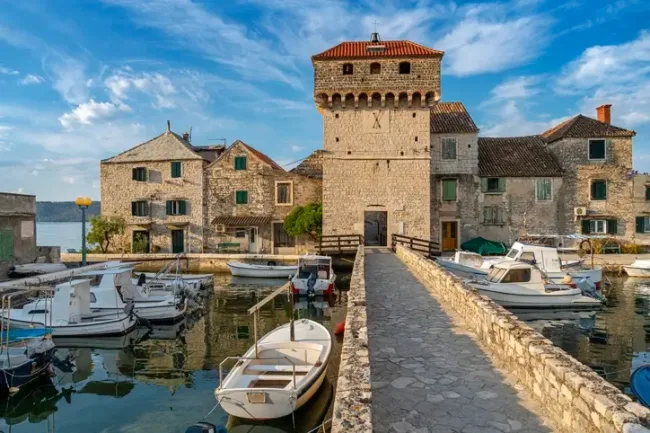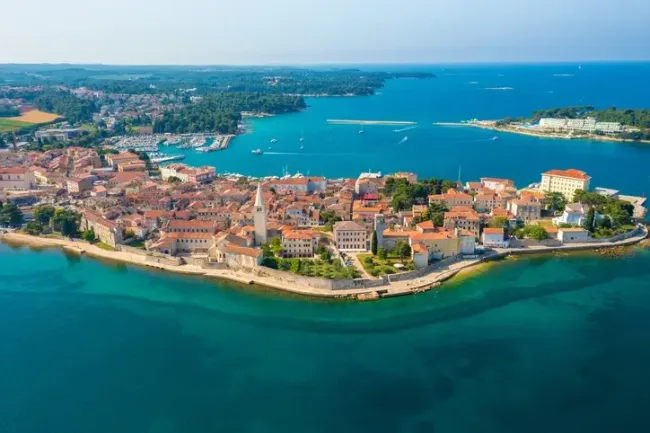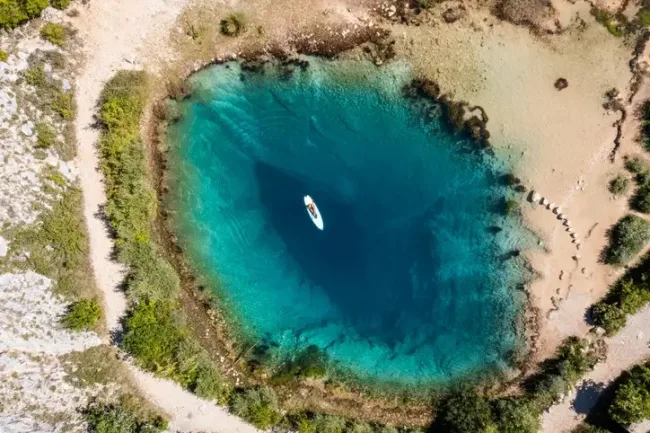
How to Apply: Schengen Visa
Complete our user-friendly online application in just 20 minutes, or feel free to take breaks and return at your convenience.
Move closer to an approved visa with our team of iVisa Experts, who not only review your answers but also provide you with the necessary tools to prepare.
Make use of our feedback and free templates to confidently submit accurate information, and experience a surprisingly stress-free process!
Once government-approved, your visa will be ready for collection, marking the start of your travels.
How to Apply: Embassy Registration
Complete our easy online application and pay with credit card or PayPal
Your embassy will assist you if an emergency (eg. Natural disasters, civil unrest, etc) occur
Why Register with the Embassy
Required Information to Apply
Once You Have Registered With Your Embassy Or Consulate, You Will Need To Update Your Data If:
- your contact details change,
- your civil status changes,
- you are going back to your home country.
Learn More: Schengen Visa
What you need to know
-
The Croatia Schengen visa, is a short-stay visa (visa type C), allowing you to either transit through or stay in the Schengen countries.
-
Your visa is valid for 90 days within 180 days. We recommend applying 15 days to 6 months before your trip, with a maximum of 9 months for seafarers.
-
Allowed activities include Tourism, business, visiting friends and family, medical reasons, studying, and training.
How to apply for the Croatia Schengen Visa
Last updated: April 2024
Planning a European adventure with Croatia on your itinerary? Now that Croatia is part of the Schengen Visa scheme, the process for non-EU citizens to visit this Adriatic gem has become more streamlined.
Start your journey with our guide on applying for a Schengen Visa and easily explore Croatia.

What is the Croatia Schengen Visa?
The Croatia Schengen Visa is your ticket to hassle-free European travel, allowing you to explore 27 Schengen member states without needing separate visas.
These countries include Croatia (of course), Austria, Belgium, Czech Republic, Denmark, Estonia, Finland, France, Germany, Greece, Hungary, Italy, Iceland, Latvia, Liechtenstein, Lithuania, Luxembourg, Malta, Netherlands, Norway, Poland, Portugal, Slovakia, Slovenia, Spain, Sweden, and Switzerland.
Your travel planning is even easier now that these countries have abolished internal border controls!
Note that to be eligible for this visa, Croatia must be the first country you enter in the Schengen Zone or where you’ll spend the most time during your trip.
What can I do with the Croatia Schengen Visa?
With this visa, you can:
- Explore this European country and the Schengen Zone as a tourist.
- Do business.
- Visit friends and family.
- Take part in short-term studies and professional training.
- Transit through the Schengen area.
What can I not do with the Croatia Schengen Visa?
Keep in mind that you can’t:
- Reside in the country or the Schengen Zone.
- Work and study for a long period.
- Reuniting family members should go through official immigration or legal procedures to live together in Croatia or the Schengen Zone.
Who is eligible to apply for the Croatia Schengen Visa?
To be eligible for a Croatia Schengen visa, you must meet the following criteria first:
-
Non-Schengen/EU/EEA nationality: You must be a citizen of a country that does not have visa-free travel to the Schengen Area.
-
Purpose of travel: You must have a clear and legitimate reason for visiting, such as tourism or business.
-
Intention to leave the Schengen area: You must convince the Croatian authorities that you intend to leave the Schengen area before your visa expires.
-
Sufficient funds: You must have enough money to support yourself during your stay.
-
Travel Insurance: You must have travel health insurance that covers emergency medical expenses and repatriation during your stay.
-
Clean record: You should not have a history of overstaying Schengen visas or have been previously deported or flagged in the Schengen Information System for any reason.
Who needs to apply for the Croatia Schengen Visa?
Most travelers from non-Schengen and non-EU countries who do not hold visa waiver status must apply for Croatia Schengen Visas, which may include a pre-departure interview.
To find out if you need a Croatia Schengen Visa, select your nationality at the top of this page.
Do minors need to apply for the Croatia Schengen Visa?
Yes, children and minors must apply for this Schengen Visa to visit Croatia if they come from an eligible country.
Parents or legal guardians must sign the application form and include the minor's birth certificate during the application process.
Who is visa-exempt for Croatia?
Travel to and within the Schengen Zone is visa-free for residents of any EU country and nationals of Schengen countries.
Additionally, nationals from the following countries can visit Croatia without a visa, according to the Schengen rules:
- United States
- United Kingdom
- Australia
- New Zealand
- Canada
How long is the Croatia Schengen Visa valid?
You can stay in the Schengen area for up to 90 days per entry within a 180-day period, with this visa. The best part is that you can hop the internal borders of Schengen countries as much as you like with one visa, as long as your total stay doesn't exceed 90 days!
The Croatian authorities ultimately determine what type of visa and what validity you receive.
If you have long-term plans to stay in Croatia or other Schengen countries, please check the Croatian government website for more details.
Can I extend my Croatia Schengen Visa?
Extending a Croatia Schengen Visa is challenging. Approvals are rare and require strong justification and supporting documentation, for example, in a medical emergency.
To find out if you can extend your Croatia Schengen Visa, contact the Croatian Immigration Service before your visa expires.
Croatia Schengen Visa: Required documents
You typically require:
-
Schengen Visa application form
-
Two recent photographs: Taken recently.
-
Valid passport: It must have at least 6 months validity after arrival and two blank pages for visa stickers and stamps.
-
Travel itinerary: Including a copy of your return flight ticket.
-
Proof of accommodation: You'll need a hotel confirmation or a letter from relatives in Croatia to show where you're staying during your trip.
-
Proof of sufficient funds: Bank statements or salary slips proving that you have the necessary funds to cover your entire trip in the Schengen Zone.
-
Biometric info: If you have not registered your fingerprints in the past 59 months, you’ll need to provide your biometric data during your appointment.
-
Medical/travel insurance: It must cover a minimum of €30,000 for emergency medical treatment and repatriation in the entire Schengen Zone and European Union.
-
Documents for children: When you’re applying on behalf of your child or a minor, their birth certificates and parental consent must be submitted too.
How to apply for the Croatia Schengen Visa
The general steps to apply are:
- Choose the Schengen visa type based on your travel purpose.
- Fill out the Schengen Visa application form accurately.
- Collect all necessary documents, including passport, photos, travel itinerary, proof of accommodation, travel insurance, and financial means.
- Book a visa interview appointment at the embassy/consulate or visa application center.
- Present your application and documents at the appointment.
- Pay the visa application fee as per the current rates.
- Monitor the status of your visa application online or through the embassy/consulate.
You can find more detailed information about the application process on the Croatian Website.
We currently don't offer this visa, but you can join our waitlist to be notified when we do:
Croatia Schengen Visa application costs and processing time
The government fee is about US$85.00 (half-price for children between the ages of 6 and 12 and free for kids under 6 years old).
The government processing can take up to 45 days, so consider this when planning your trip.
Do I need the Croatia Schengen Visa to transit through the country?
Citizens of Afghanistan, Bangladesh, the Democratic Republic of Congo, Eritrea, Ethiopia, Ghana, Iran, Iraq, Cuba, Nigeria, Pakistan, Somalia, and Sri Lanka will need a Transit Visa.
Please contact your local embassy or airline for current Croatia Airport Transit Visa requirements.
Where can I learn more about the Croatia Schengen Visa?
Our dedicated online team of customer service agents is available via online chat, or you can speak with them via WhatsApp.
Questions?
What are iVisa's accreditations and recognitions?
When should I apply for the Croatia Schengen Visa?
How long does it take to apply for the Croatia Schengen Visa form?
What documents do I need to bring to the Croatia Schengen Visa appointment?
- Your online application form. Completed, printed, and signed.
- Your receipt confirming the fee payment. This is emailed to you by one of our agents.
- Two identical photos, not older than 6 months, glued to your application form. Follow the Schengen standards to make sure they are 100% government-compliant.
- Fingerprints. Consider your Schengen Visa applications in the past 11 years. Except for children under 12.
- Passport. Less than 10 years old. Valid for 3 months after visa expiry with 2 blank pages.
- A cover letter explaining why you intend to visit Croatia.
- Detailed travel itinerary. Download our free template!
- Proof of your financial capability. Stamped/signed bank statements from the past 3 months that prove you have enough funds for each day you plan to stay in Croatia. This doesn't apply to kids traveling with grown-up family members.
- Accommodation confirmation and their contact information.
- Proof of return to your country, such as return or round-trip tickets.
- If a minor, you'll need parental consent.
- If visiting friends or family, a confirmed invitation letter with their ID or residence permit copy.
- If a student, a recent, signed, and dated, letter from the institution specifying your enrollment and a No Obligation Letter specifying that an applicant's current institution or employer has no objections to their plans to study or work abroad.
- If traveling for business, a confirmed invitation letter from the Croatian institution explaining the purpose of the trip. And, a 3-month business bank statement.
- For medical travel, a certificate from the institution confirming treatment availability and financial capability.
- Health insurance with coverage of at least €30,000 in the Schengen area.
Can I travel to all the Schengen countries with the Croatia Schengen Visa?
Can I get the Croatia Schengen Visa for free?
Unfortunately not. There is a government fee you will need to pay.
You won’t need to pay the government fee if the applicant is under 6, a student, scholar, teacher, researcher, non-profit event participant under 25, attending international meetings in Croatia, a family member of Croatian citizens, invited by the government, a diplomatic and service passport holder, or a family member of EU, EEA, Swiss Confederation, or EFTA citizens.
How long is the Croatia Schengen Visa valid for?
Are there any COVID-19 requirements to enter Croatia?
Who can I talk to if I have more questions?
Where can I read more?
- Croatia Schengen Visa for Indian Citizens
- Croatia Schengen Visa for United Arab Emirates citizens
- Croatia Schengen Visa for United Kingdom citizens
- Best time of year to visit Croatia and enjoy nice weather on your trip!
- Best cities to visit in Croatia: which one should I not miss?
- Things to do in Croatia: what are the best things to see there
- Croatia visa policy
- Croatia Vaccination Requirements: Do I need a vaccine to travel to Croatia?
- See All

 India Visa
India Visa
 Turkey Visa
Turkey Visa
 United States Visa
United States Visa
 Australia Visa
Australia Visa
 Colombia Visa
Colombia Visa
 New Zealand Visa
New Zealand Visa
 China Visa
China Visa
 Egypt Visa
Egypt Visa
 Vietnam Visa
Vietnam Visa
 Indonesia Visa
Indonesia Visa


